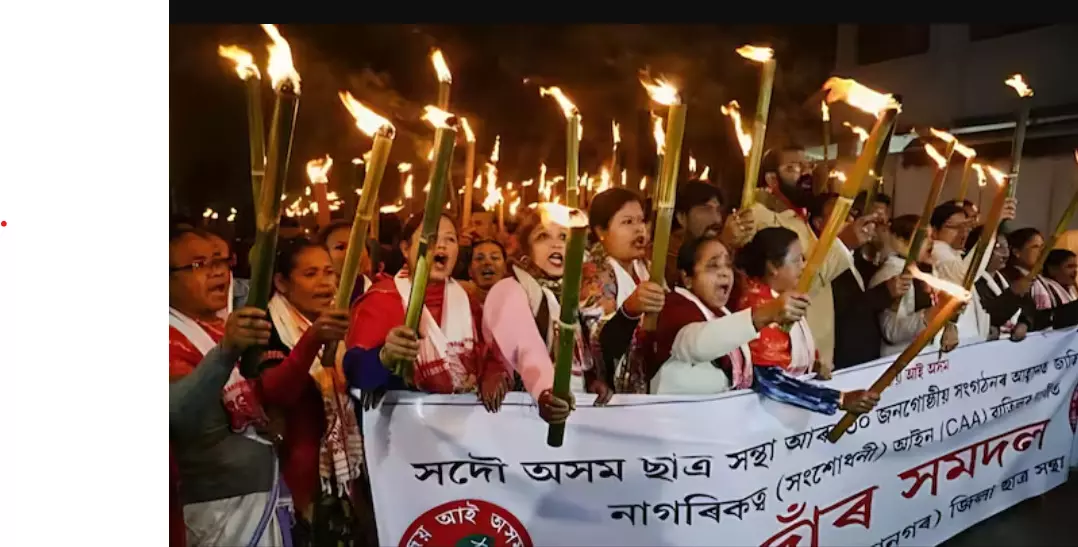Political masterstroke?

The recent notification of the Citizenship Amendment Act (CAA) rules after over four years of delay is, obviously, not a mere bureaucratic housekeeping exercise; it is a calculated political move with far-reaching implications. The CAA, passed in 2019, has been a contentious issue since its inception, triggering widespread protests across the country. Now, its notification ahead of the polls has only added fuel to the fire of dissent and apprehension among various sections of society. The CAA, in its essence, aims to fast-track citizenship for undocumented non-Muslim migrants from Pakistan, Bangladesh, and Afghanistan. While the government argues that it is the fulfilment of a historical responsibility and a humanitarian gesture towards persecuted minorities in the aforementioned countries, critics view it as discriminatory and violative of the principles of equality enshrined in the Indian Constitution.
The delay in the notification of the CAA rules has been attributed to two main reasons: mass protests and the COVID-19 pandemic. The protests following the passage of the CAA highlighted the deep-seated apprehensions and discontent among a significant section of the population. Those apprehensions, it may be noted, are not yet addressed; the Centre instead appears to bank upon the “preparations” in potential conflict zones to “handle” the situation. Protests have already erupted in several parts of the country, particularly Assam where citizens apprehend the violation of Assam Accord. Implementation of laws and rules in a democratic nation must be guided by consultative processes and not (man)handling and high-handedness.
The concerns raised by protestors merit close scrutiny. The government’s assertion that the CAA is “a law to give citizenship” and “not to take away the citizenship of any Indian citizen” is a mere technical assurance and wordplay. Apprehensions around a country-wide NRC, if materialised and combined with CAA, may set a highly discriminatory regime. The Union Home Minister had once openly declared the government’s intent to implement NRC after CAA. The claim, however, was put under the cloud of ambiguity following rigorous protests. Even without the NRC considerations, the CAA appears discriminatory in nature and violates the right to equality enshrined in the Indian Constitution. Moreover, the timing of the notification, just ahead of the next general elections, raises questions about the government's motives. By emphasising its commitment to fulfilling electoral promises, the government seeks to rally support among certain demographics, particularly in states like West Bengal where the CAA could have significant electoral implications. Certain opposition parties have indicated that the BJP might be eying at triggering polarisation and creating a state of anarchy to reap political dividends. By portraying the CAA as a fulfilment of its promise to protect the interests of persecuted Hindus, the BJP aims to consolidate its support base and expand its electoral footprint in key battleground states.
To sum up, the delayed notification of the CAA rules is a calculated political move aimed at strengthening the BJP's electoral prospects. However, the implementation of the CAA is fraught with challenges and raises fundamental questions about citizenship, equality, and the secular fabric of Indian democracy. As the country prepares for the upcoming elections, it is imperative to engage in a constructive dialogue that addresses these concerns and upholds the principles of democracy and pluralism.



